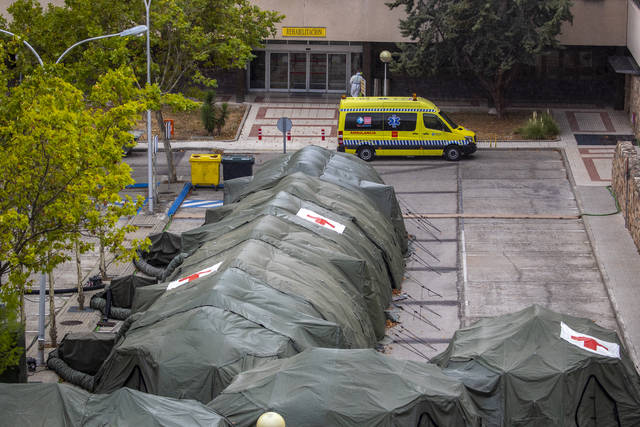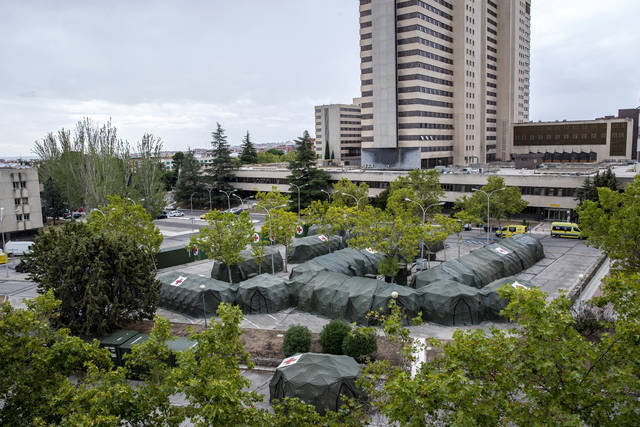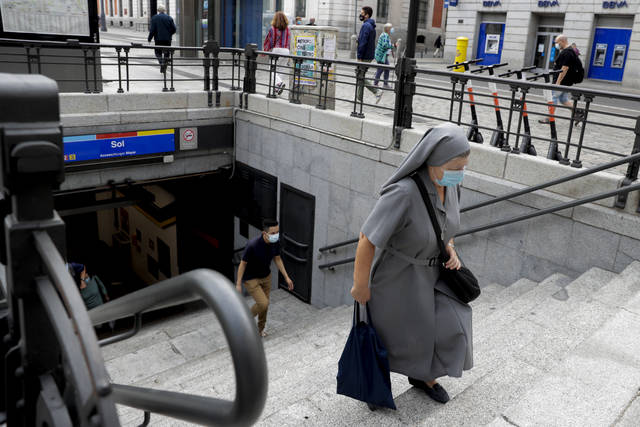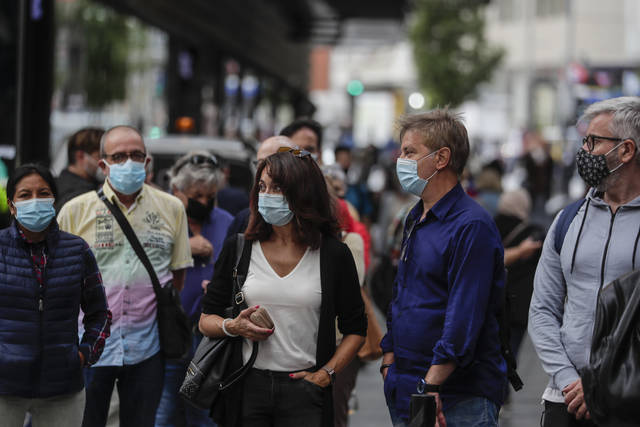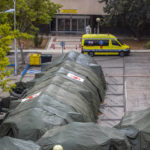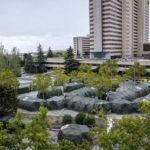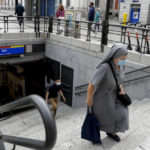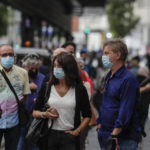MADRID — A line of green tents labeled with a red cross stands empty Friday in the garden of a Madrid military hospital as a second wave of the coronavirus takes hold in the Spanish capital.
The Gómez Ulla hospital is getting ready just in case emergency wards get crammed again.
Covid-19 cases are stubbornly on the rise in Madrid despite curbs on nightlife, outdoor smoking and limiting all group interaction to a maximum of 10 people. The incremental measures have not prevented the outbreaks from spreading widely, something that experts blame on looser observance of self-protection and, especially, a failure in diligent tracing of contacts of positive cases.
Authorities in Madrid were set to announce “drastic measures” Friday against the outbreaks. They hinted that those could include localized lockdowns and other “restrictions on mobility” in Madrid’s hardest-hit areas, which are also the poorest and more densely populated.
But experts are warning that they may not even be enough.
“There is so much community transmission in Madrid that is possible that very soon a full lockdown will be needed,” said Rafael Bengoa, a former WHO official.
“It seems like we are learning too slow — we haven’t acted energetically enough,” he told Cadena SER radio.
The measures are “tardy and insufficient,” said Daniel López Acuña, who was director of emergencies at WHO. “They are overthinking it. Action is needed.”
The center-right coalition government in Madrid has been in turmoil, part internal infighting and part external criticism, as it struggled this week on what to do next. The region’s top coronavirus expert announced on Wednesday that stay-at-home orders should be expected by the weekend, but his bosses took a distance from his remarks.
The regional boss, Isabel Díaz Ayuso, has also been one of the biggest critics of the national left-wing coalition’s handling of the pandemic. Her government recovered control in late June, once the central government lifted a state of emergency that had reined in a devastating first wave of the virus. But since then, Ayuso had been complaining that central authorities weren’t helping enough.
After weeks exchanging blame for inaction, Sánchez and Ayuso have agreed to meet Monday with the only goal of “bending the curve,” both governments announced Friday.
Part of the concern is Madrid’s capacity to spread infections to other parts of the country. Home to 3.3 million people in its urban area and as many more in its surrounding region, the city is also Spain’s economic powerhouse. It’s also centrally located at the heart of the Iberian Peninsula, bringing in workers from nearby provinces and visitors from elsewhere.
On Friday, the city reported more than 5,100 new infections, 200 more than the day before. The regional hospitals were treating 2,907 people, including nearly 400 in intensive care units, one third of the country’s total.
But so far it’s health centers that are shouldering the worst of the crisis. Famously underfunded for years, primary care doctors and nurses are now also performing thousands of virus tests per day, and have taken the burden of tracing contacts of those who come out as positive.
That’s causing increasingly longer delays in providing test results, leaving people like Raquel López, a 39-year-old sociologist on her 21st week of pregnancy, waiting at home in self-imposed isolation for five days as she waited to find out whether she had the virus.
Raquel, who took the test on Monday after finding out that a family she spent time with a week earlier had contracted the virus, on Friday was told that she’s negative.
“But it could had been either way,” said López, who works from home. “My husband and I have been responsible and we haven’t gone out while waiting for the results, but what happens with people who can’t afford to miss work? Are they going to wait at home or go out there possibly infecting others?”
López lives in Vallecas, one of the working class neighborhoods that is expecting some of the restrictions. She’s angry at officials who promote the idea that people in impoverished areas are to blame for not using masks, keeping social distancing or completing quarantines.
“That’s not true. We are doing it the same way as the rest of Madrid,” she said. “The truth is that citizens are behaving much better than politicians.”
Spain on Thursday added more than 11,000 new infections and registered 162 new confirmed deaths from the virus. The country has Europe’s highest caseload since the beginning of the pandemic. More than 625,000 people have been infected and at least 30,400 have died, according to the Health Ministry’s official data.


